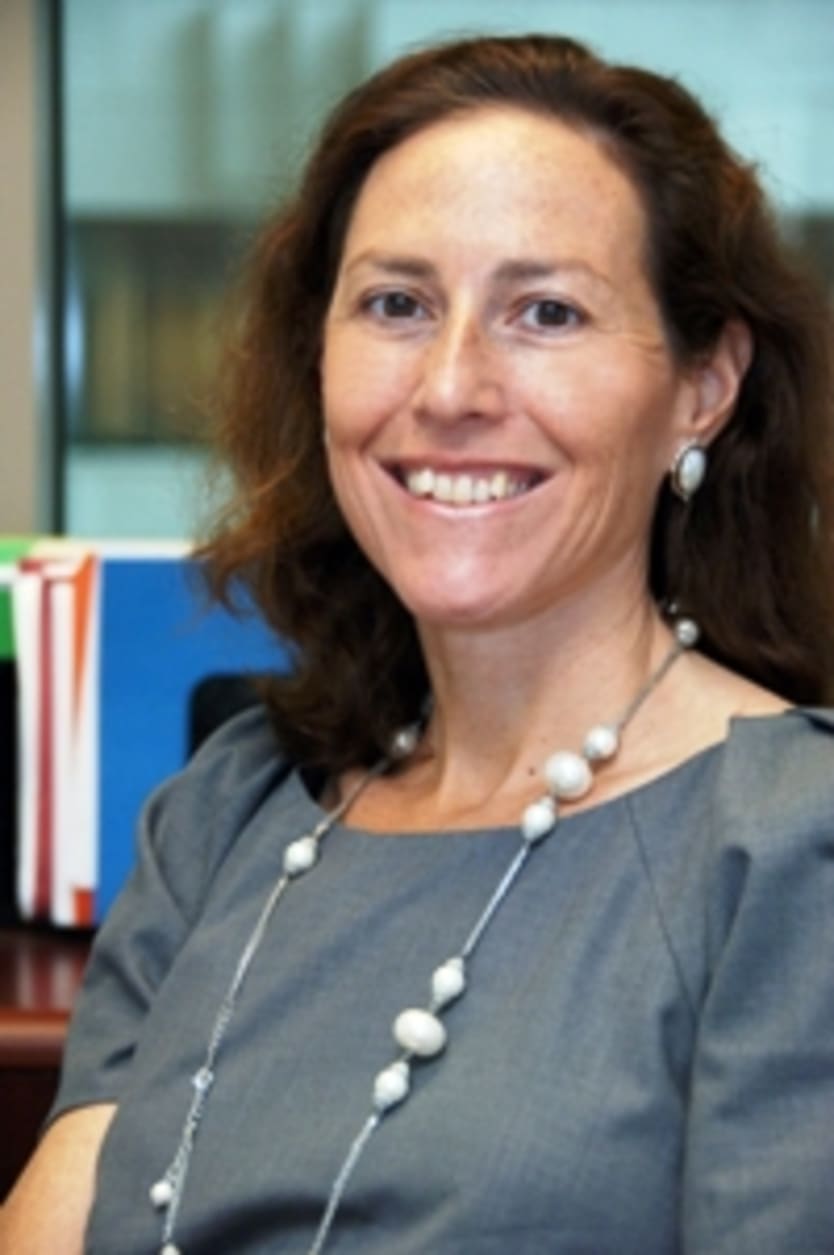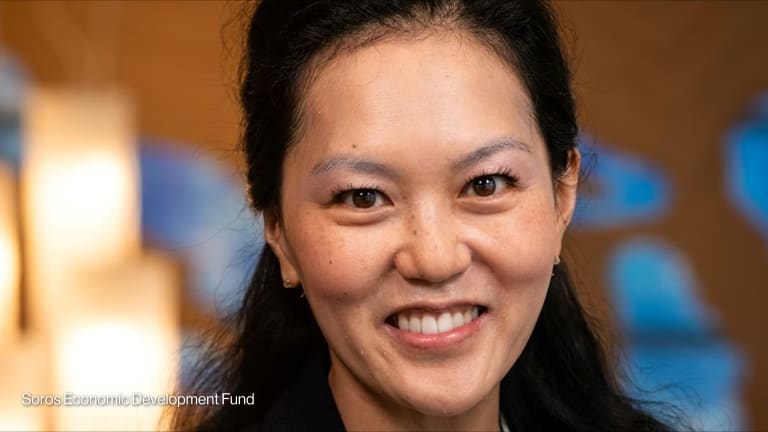
Sandra Darville plays a key role in the Inter-American Development Bank’s efforts to promote private sector development in Latin America and the Caribbean. As chief of the Multilateral Investment Fund’s Access to Finance Unit, she helps decide where IDB should invest the fund’s $2.2 billion resources.
MIF is the leading source of technical assistance grants for micro, small and medium-sized organizations in the region. It has approved more than 1,000 projects and has more than 800 civil society, private sector and government partners in IDB’s 26 developing member countries.
Darville’s roots in Latin America and business run deep. Half-Colombian, Darville grew up speaking Spanish and traveling through the region, which early on generated in her an interest in Latin American economics. She earned an economics degree from the University of Virginia and a Master of Business Administration from the Thunderbird School of Management in Arizona, and then became a Washington commercial banker working on trade finance and international debt issues. Darville initially joined IDB’s Inter-American Investment Corp. in the mid-1980s before moving to MIF when it was created in 1993.
Devex talked with Darville on the sidelines of the Encuentro Centroamericano de Microfinanzas in San Salvador, El Salvador in September. In this first part of the interview, Darville discusses MIF’s mission and methods, current MIF microfinance investment trends, and the agency’s processes for working with local partners.
What is the MIF, and what are its investment goals?
It was created about 15 years ago with an initial donation of $1.2 billion from different governments, primarily the U.S. and Japan. We are a donor-funded institution, so we primarily provide grants. The reason we were created was to help the private sector when privatization was occurring throughout the region. It was to help create the playing field for the private sector, and all of our grants go to technical assistance. We provide grants to [governments, NGOs, private sector organizations] and even sometimes companies. So for microfinance, for example, we did a lot of technical assistance for NGOs that were thinking of transforming.
What about the role of the Access to Finance Unit?
We have a little bit of an investment bank within the bank, and that’s primarily what I’m involved in. We specifically have to work with micro and small businesses; that’s our mandate. So we got involved very early on with microfinance. And we were really building off the work that the IDB had done because the IDB had run around for 13 years…seeding these institutions very early on. A lot of what you see in Peru was created from grants by the IDB through small loans.
Because we are a donor-funded organization, we run this as a sustainable investment group, but we also have a risk tolerance that a commercial investment bank wouldn’t have. So we were able to make investments in startups or in new microfinance institutions that someone else would have thought as too risky. Back in those days, it [microfinance] was not a slam dunk at all. It was a sector that people didn’t understand; people thought it was very risky. And then what we did was we sold our investments because we are a multilateral. We want to recapitalize, get our money back, and do something new. We want to make sustainable investments so that we can get reflows into our grant-making organization.
What is MIF’s investment philosophy?
I think we see our role as being temporary, and then if the private sector wants to come in, that’s fantastic. We’ll sell, let the private sector come in; they can stay there. I think there are also different things that different investors provide. We provided that early high-risk seed capital, and then maybe we sell to another private sector company that’s able to provide governance support, or…technical advice. Our philosophy has always been to sell as quickly as we can at a profit. We were the first institutional investor in the first microfinance equity fund in the world, which was Profund.
Do you have a preference for investing in startups or in existing institutions?
We invested in three startup Profund investments recently: Colombia, Honduras and Mexico. We are investing in a new startup in the Amazon with Accion. And at the same time, we are still doing transformations. NGOs that have been solid and that work well and that want to transform into for-profits, we are investing with them. In some markets where equity might not be the best instrument, we’ll do loans, if we think they really need us and nobody else is there. So, we are giving an institution in Haiti a loan.
What are the current MIF investment trends?
We do like funds because of the leveraging impact. The ability to leverage with other partners is important to us. But you also lose a certain amount of control in a fund, and you are not able to do maybe some of the things you would like to do because you have to harmonize with the other investors. We still do have direct investment initiatives. Our focus is really on those markets where the [microfinance] industry hasn’t taken off. So Peru and Bolivia, not really much for us to do there. There might be some NGOs that are transforming that need equity that we might do business with, but it’s not really our focus. The focus would be on startup in countries where the industry is still in development, and actually that tends to be the larger countries, Brazil and Mexico. In places like Central America, there is potential for NGO transformations. But there’s a lot of baggage associated with transforming an institution.
How do you identify potential local partners?
We work like any other financial institution: We try to network as much as possible. We have offices in every [member] country. We know every institution out there. At least one person in our group knows every single microfinance institution. We have personnel that specialize in certain countries and tend to know the players. They [the local partners] need to want to work with a multilateral. We need to have a good relationship and a good understanding of what everyone’s expectations are. As I said, we like to exit, so they need to have an exit scenario.
What are your prerequisites in choosing local partners?
We like to think that we pick winners. We do selectively look at proposals. We like to see very solid business plans with experienced people, a good distribution of shareholders - maybe an NGO, with a private entity, with a local investor and a multilateral. Everybody adding different things to the pool. Part of it is certainly the environment they are operating in. If the environment is very tough and not really amenable, then we’d be less inclined to make an investment. We like to see experienced people. That’s critical for us. The reputation of the sponsors is very important; the local NGO or the shareholders whose every idea it was. We want to make sure that the vision of the institution is one we agree with. We only invest in for-profit organizations. We have provided loans to nonprofits.
How can organizations interested in working with MIF get in contact you?
We have MIF specialists in each country, and that’s probably the best staring point because the MIF specialist can go out and meet them right away, look at the institution, look at the client. [MIF specialists] really know what’s going on in the market.
Read the second part of our interview with Darville, where she talks about MIF’s venture capital portfolio and provides advice for those seeking a career at MIF.








